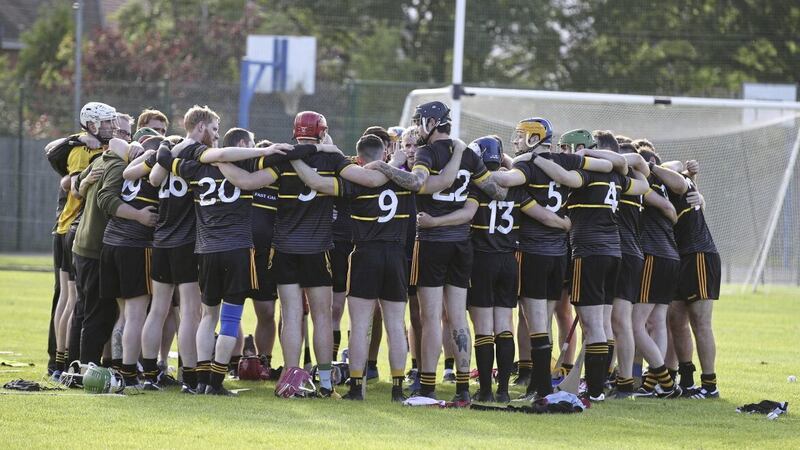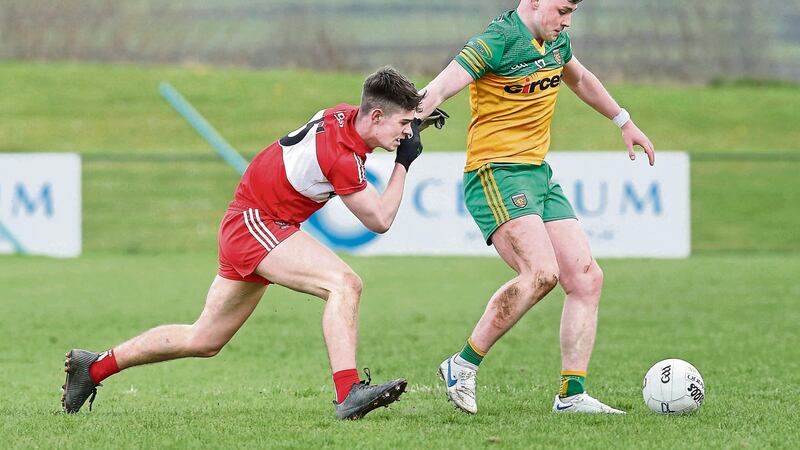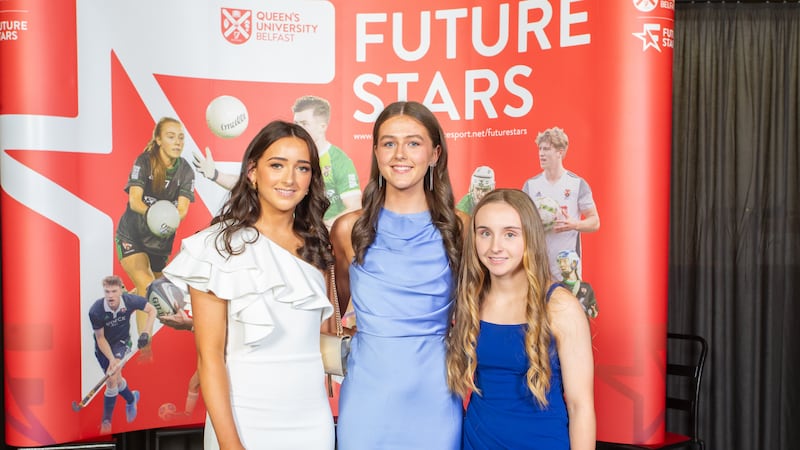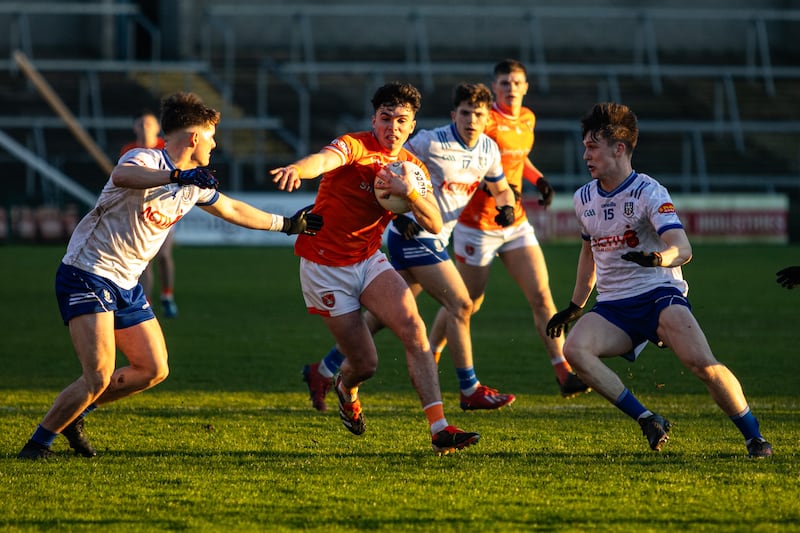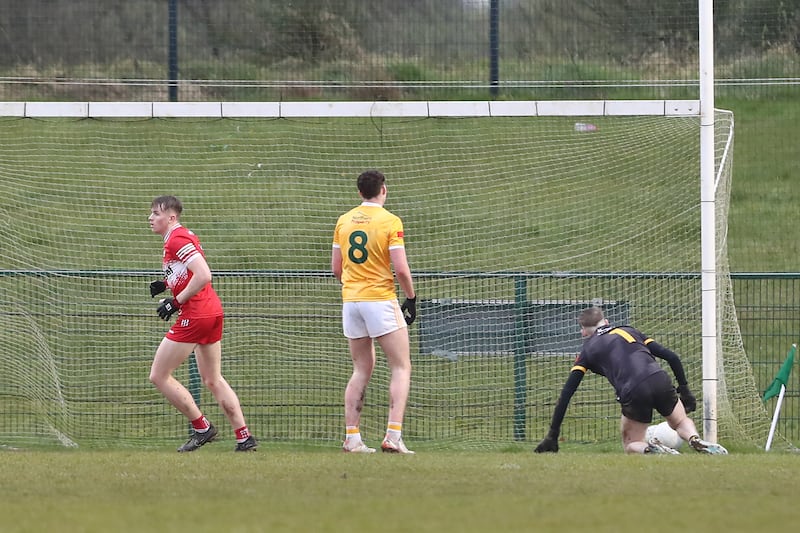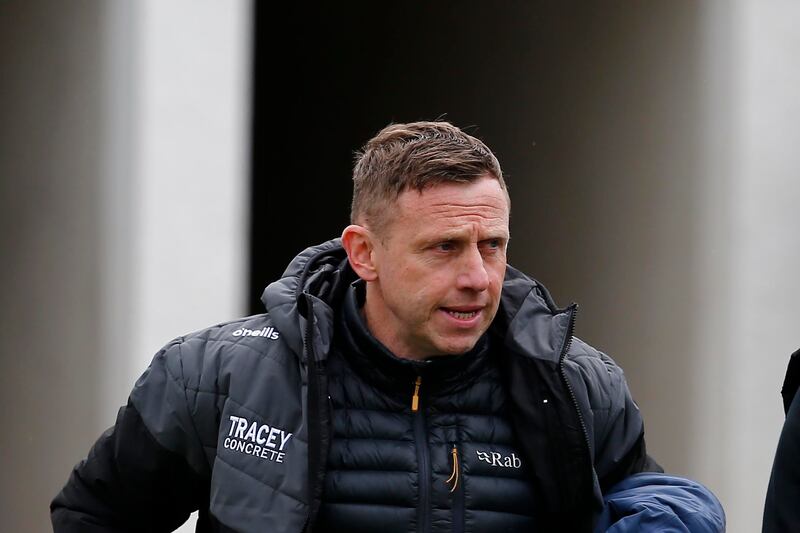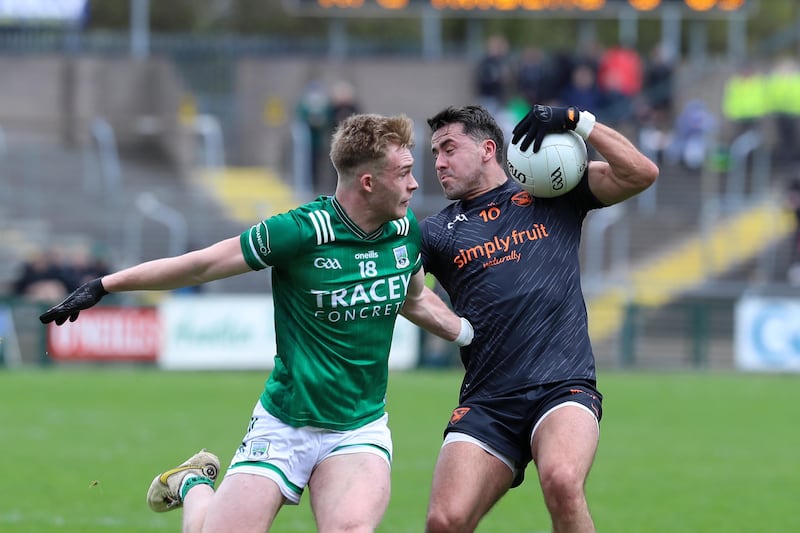BEING a bit nosey by nature, I eavesdropped on an after-match pep-talk a couple of weeks ago.
Every man in the squad stood stony-faced in a huddle with arms around each other’s shoulders as the manager underlined the vital importance of team spirit and unity within their group.
They hadn’t won the game that had just finished and he had seen them point fingers at each other – criticising and bitching instead of encouraging. It was tit-for-tat stuff. One player gave out to another over a bad ball or a missed tackle, then the red-faced accused reacted and answered his accuser back and so on.
After the game, various factions and cliques formed and when the manager saw the players making their way off the field in little groups he called them all back because he knew that the one-in, all-in spirit that can turn a narrow loss into a draw and a draw into a one-point win just wasn’t there.
“When we win, we win together,” said the manager passionately.
“And when we lose, we lose together.”
He told them he’d seen talented teams ruined by in-fighting in the past so he didn’t want to see any more of the finger-pointing. He wanted his players to support and encourage each other because, he said, that was the only way they would improve as a team and reach their true potential.
He made his points brilliantly and he was absolutely right. Natural talent will get a player so far, hard work will get the same player that bit further but the bond, the environment where everyone – no matter what age, or what job they do, or what ability they have - is flourishing by pulling together in the same direction is what is really essential for success in team sport unless you have a Lionel Messi or maybe a David Clifford in your line-up. Even then, the geniuses need the humility to understand that they won’t win anything without their team-mates fully supporting them.
It’s human nature to blame someone else. You see it all the time in sport. During the week I watched an under-pressure goalkeeper in an underage game kick the ball out again and again. He varied his restarts down the middle and out the wings but his team-mates weren’t winning them and yet he was getting stick for his efforts.
He shut his detractors up with a few choice words and you’d hope that the team’s coaches noticed because there is something valuable there for them to work on. Coaches go through skills and drills and formations and tactics but the importance of teaching young players the value of respect for each another and how to play for one another cannot be over-estimated.
Last weekend, Oisin McConville’s Inniskeen Grattans were five points behind early in the second half against Truagh Gaels. They were being outplayed but they found the resolve to drag themselves back into the game and salvaged a draw with an equaliser at the death. Afterwards McConville said proudly that, whatever the shortcomings of his players, fighting spirit wasn’t one of them.
“We showed fight, you never ask these boys questions that they can’t answer as far as fight is concerned,” said McConville, who will hope to nurture the same spirit in Wicklow when he takes over there.
“You could see it right at the end, they’re all about fight and about looking after each other and if we didn’t have that, we wouldn’t have got a draw.”
McConville played in an Armagh team that was renowned for its in-your-face united front in the early noughties. If an opponent was daft enough to start on one of the Orchard boys, he’d soon discover he’d have a posse of them to deal with.
Legend has it that the Orchard squad were driving away from a ground one day when they saw one of their team-mates being set upon. The mini-bus came to a screeching halt and the lad in the front seat beside the driver immediately jumped out to go to his friend’s aid.
He expected the rest of his team-mates to come piling out the back of the bus but didn’t realise that the backdoors only opened from the outside. The rest of the boys were trapped and so he was left to fight his own battle until they clambered over the front seats to join him. They got there eventually and of course the experience brought them all that bit closer together.
Now of course I’m not advocating that managers take their teams around town centres in a bus on Saturday nights hoping for a fight to break out - there are other, less painful, ways to go about it.
The crux of creating team unity comes from a sense of everyone giving absolutely everything they have for the cause. One player may only have limited ability but if he or she is putting everything they have into their role then the players with higher levels of ability will follow suit and so they make each other better.
When there is trust and respect there, when every player is operating at their full potential and with a common purpose, you’ll get a unit that will take a bit of beating.
Team building is all about relationships. If you look at an average club, you’ll have a squad of 25 players so you’re talking about somewhere in the region of 700 separate relationships. For example: Player one gets on great with players two and 25 and he gets on fine with players five, six and seven and his cousins 11 and 14 and he’ll pass the ball to them but he doesn’t hit it off with 11, 12 or 19 and he has no time at all for seven, 17 and 20. Meanwhile, eight and 22 don’t like him, etc, etc, etc. Cliques form if individuals never really get to know and trust each other and all those different dynamics are going on in every club team.
So how does a team become united? How do you get them to pull together when the chips are down, when they’re five points behind and staring defeat in the face like Inniskeen were last weekend? It’s easier said than done but leadership is the key and maybe the best time to work on it is after a game has been lost because there’s always an opportunity to turn negative into positive.
The lessons learned in defeat are often the most valuable and that’s where a good manager really earns his corn because a ‘team’ that plays as individuals is weak but a team that plays together won’t be broken.
As that manager said when nosiness got the better of me a couple of weeks ago: “When we win, we win together and when we lose, we lose together”.
If he’d known I was listening he’d probably have taken his players up to the top of a mountain to give that talk in private.
Come to think of it, that might have been a very useful team-building exercise…
